- Home
- Mike Lupica
Million-Dollar Throw Page 4
Million-Dollar Throw Read online
Page 4
And, just like that, he would.
Abby hadn’t been awake tonight and Nate had finally managed to fall asleep when voices from downstairs woke him up.
Nate couldn’t tell at first whether his parents were having an argument. He just knew that his dad’s voice was loud and he was saying something about how somebody had better buy their house before the bank got it.
Then he heard his mom tell his dad to lower his voice or he was going to wake Nate.
“Maybe he needs to hear this,” he said.
“No, Chris,” his mom said, “he doesn’t. He’s got enough to worry about.”
And his dad said, “Do you think he doesn’t understand what’s going on around here? Do you think the boy doesn’t see what’s happening to us? Do you think he actually believes us when we tell him not to worry about money? He’s too smart for that.”
Nate’s chest tightened and his hands gripped the blanket hard. His dad wasn’t joking about “For Sale” signs now or anything else, not talking about game-changers, not talking about how the Patriots got things turned around. Not pretending that things were going to be the way they used to be.
His mom was doing her best to keep her voice low, as though it could somehow quiet his father’s loud one. But Nate heard every word in the still darkness.
“Sports is a job for you now, Chris. Not him. He’s just a boy.”
His father said nothing at first, and Nate thought it was over, that he could try to somehow get back to sleep.
Only it wasn’t over.
Nate heard him loud and clear:
“You know what we could use around here? A million dollars.”
CHAPTER 7
Nate loved practice.
Not everybody on his team did. Hardly anybody on the team loved practice, because more than anything, football practice was repetition, doing things over and over until you had them right, until you could make the decisions you had to make in the game—not just the quarterback, but everybody—in the tiny amount of time you had to make them.
Coach liked to say, “The biggest myth in the world is the one about dumb football players. That comes from people who’ve never played this game. Because once that ball is snapped, guys all over the field have about two seconds, tops, to decide where they’re going and what they have to do. So you’d better be prepared in this game, ’cause it comes at you fast. Dumb football players? No such thing.”
Nate wanted to be the most prepared guy out there. He figured that made him the opposite of Allen Iverson, who was in one of Nate’s all-time favorite YouTube clips, the one where he kept saying “practice”—“We’re talkin’ about practice”—over and over as if it were the dirtiest gutter word in the world.
Nate loved putting on his equipment, making sure his pads were just right, loved joking with the guys when they were stretching to get themselves warmed up. And he knew that the best part of practice, what Coach called their “team work”—two words, not one—where they’d work on plays until they got them perfect, hadn’t even started yet.
The great quarterbacks, Nate knew, were the ones who were most prepared. Starting with his man, Brady. Oh, Nate had read up on all that, on Brady and Peyton Manning, how they loved all their time watching game film and even being in the weight room with the big guys on their team, the linemen and the linebackers. He remembered reading somewhere that even before Brady stepped in for Drew Bledsoe the year the Patriots won that first Super Bowl, Coach Belichick used to say that not only did Brady know all the Patriots’ plays and all their options, he knew the other team’s plays and options better than anybody because he’d run those plays against his own defense in practice.
“He was never surprised,” Belichick said about the Tom Brady he knew before everybody else did.
Nate wanted to be that kind of quarterback. Nate wanted to put in the work. He knew they had more plays—there were seventy-five in all—than any other eighth-grade team around. He knew they had a whole separate offense run from the shotgun formation when no other team in their league did. Nate learned that the way he learned everything else in Coach’s offense—studying as if for a final exam.
Valley’s backup quarterback was Eric Gaffney, one of the team’s wideouts and almost as much of a favorite receiver for Nate as Pete Mullaney was. As they were getting ready for practice the Thursday before the Blair game, Nate had been talking about a new play from the shotgun they were going to use on Saturday, and why he thought it would work.
“Coach doesn’t even know these plays the way you do,” Eric said.
Nate grinned. “I just read the playbook,” he said. “Coach wrote it.”
“You sure it’s not the other way around?” Eric said.
Nate said, “C’mon, if I get hurt or something, you know this stuff as well as I do.”
“Dude, no one does.” They were finishing warm-ups up now with some hamstring stretches. “And dude?” Eric said. “Please don’t get hurt.”
Coach Rivers had been a quarterback himself in college, at the University of Massachusetts, and every once in a while he would take a couple of snaps and make a couple of deep throws just to show his players—his words—that he wasn’t some kind of “chopper.” Tonight he said they were going to start out running plays in their red-zone offense, which meant that Nate and the guys would start on the defense’s 20-yard line.
Sometimes they did it that way the last practice before a game, Coach telling them they had two minutes to score. Or a minute. Or even thirty seconds. Sometimes he’d do it the way he did in a game, have his assistant coach for the offense, Coach Hanratty, hold up a chalkboard with three plays on it, only Nate knowing which one was his “hot read”—the play he was actually going to call.
Sometimes he’d even let Nate call the plays himself.
“The one thing most coaches at this level don’t realize,” Coach had said the first week of practice, “is that you guys want to learn. You’re like sponges when it comes to learning. So you’d better know from the jump that we’re not going to play your father’s style of eighth-grade football. If anybody here thinks ball control means running with it, grab a ball and go run some laps.”
Their defensive coach was Coach Burnley, Malcolm’s dad. Malcolm pulled double-duty as the Patriots’ middle linebacker in addition to playing center.
While he huddled up with his guys, Coach Rivers pulled Nate aside and said, “There’s gonna be plays up on the chalkboard, like always. But call what you want tonight, as long as you throw every down.”
Nate said, “Well, if you insist.”
Then Coach walked away from him, telling everybody that the offense had a minute and a half, no time-outs.
Throw every down, Coach had said.
In Nate’s mind, it was like telling a bird to fly.
First down he split out Pete and Eric to the right side, a play they called “L Wait.” It meant LaDell. He was supposed to hold his place in the backfield for a couple of beats, then swing out to the left sideline and look for the ball once he crossed the line of scrimmage. If the linebacker came up on him, LaDell could try to blow by him, knowing Nate would read the move.
Nate took the snap from Malcolm, dropped back, rolled a little to his right, trying to make it look as if he had Pete and Eric over on that side of the field for a reason, that he planned to end this imaginary ninety-second game—the best kind of fantasy football—on the very first play.
He eyeballed his wideouts just long enough, then looked to his left, saw LaDell over there, saw their right linebacker, Sam Baum, giving him way too much room, five yards at least, LaDell wide open.
A beautiful thing. LaDell being open that way.
It was the pass that was ugly. Hideously ugly. Nate knew as soon as he released the ball, knew it was a bad throw the way he knew when it was all good. Knew. He had given the ball too much hang time, led LaDell by too much. And even though Sam Baum had to be as surprised as anybody on the field that Nate would give him th
is kind of bunny on the first play of practice—or ever—he knew what to do when he saw the ball floating in front of him like a beach ball.
He closed on the ball as if the play had been called for him, as if he were Nate’s primary receiver, and there was nothing LaDell could do to stop him. Sam caught the ball in stride and ran the other way with it until Coach, the only one who could stop him, did that by blowing his whistle.
As practice wore on, the harder Nate tried, the harder it got for him to hit what he was aiming at.
When they moved the ball back later, in a part of practice called “Stretching the Field”—you could only try for pass plays of fifteen yards or more—he had Pete wide open on a Hutchins-and-Go and overthrew him by ten yards.
When Pete got back to the huddle, he tried to make a joke of it, saying to Nate, “It was already too high when it went over my head for me to make out what airline it was. Thought it might be jetBlue but, like I said, no way of knowing for sure.”
Nate didn’t miss everybody by that much. And he didn’t miss with every ball he threw. But for the first time all season, practice or game, for the first time in a long time, he felt as if he had borrowed somebody else’s arm.
In baseball they talked about “command” with pitchers.
Tonight Nate had no command.
Short passes, long passes, didn’t matter. The surprise tonight was when he completed one. When Coach finally gave Eric a few snaps before they finished, the way he always did, he pulled Nate aside and said, “Your arm okay?”
“I’m feeling fine,” Nate said. “I just feel like my brain and my arm didn’t know each other tonight.”
“Maybe that was your problem tonight,” Coach Rivers said. “Maybe you were just thinking too much.”
Nate knew Coach was probably right. What he couldn’t figure out was this:
Thinking too much about what?
CHAPTER 8
All week long, Nate was expecting his dad to go to the Blair game. Chris Brodie had said he’d switch his schedule around, that instead of working on Saturday this week, he’d work one extra night at Big Bill’s the following week.
Nate told his dad he didn’t have to do that, give up one of the few times during the week when he could still have dinner with Nate and his mom. He knew what a grind it was for his dad to come home at eleven most nights, then get up the next morning and try to sell real estate.
“I’m not doing it because I have to,” his dad had said. “I’m doing it because I’ve got prime tickets to watch the best thirteen-year-old quarterback in the state.”
“Dad,” Nate said. “It’s just one game.”
And his dad had said, “Someday when you have a son who’s the quarterback and realize just how few of these Saturdays there really are, you’ll understand.”
It was eight o’clock Saturday morning when the phone rang, and Nate got a sinking feeling in his stomach. It was the manager at Big Bill’s, calling to tell Chris Brodie that the man he’d switched with had called in sick and that Nate’s dad was going to have to work that day after all.
Nate could hear only bits and pieces of his dad’s side of the conversation, because as soon as his dad knew who it was on the other end of the line, he walked out of the kitchen. But one word Nate kept hearing over and over was “please.”
His dad pleading with the man.
When he came back into the kitchen, he said, “I have to work,” in a voice that sounded as small as if it were coming from upstairs.
“I’m sorry,” he said to Nate.
Then he looked at Nate’s mom for a long time, what felt like forever to Nate just because the look on his dad’s face was so sad, and said, “I hate this.” He walked out of the kitchen again and they heard the slow, heavy sound of him walking up the stairs.
When he came back down, he was wearing the red “Big Bill” shirt that he had to wear to the store, one that Nate knew his dad had come to hate, knew because he had once heard him tell Nate’s mom he hated it, that it was like a uniform announcing to everybody what was happening to him.
Like Abby’s orange sunglasses.
Blair called themselves the Bears.
“Pretty sure it isn’t short for Care Bears,” LaDell said when they started their stretching.
“Oh, they care all right,” Malcolm said. “Mostly about giving smackdown beatdowns.”
“You really think they want to do both?” Nate said.
“Remember last year’s game against those suckers?” Pete said. “They thought they had given us a smackdown beatdown, and then you hit them with those two long passes in the fourth quarter.”
“I remember,” Nate said.
He remembered because that was the beauty of sports. There were games you watched and games you played that you knew you’d never forget as long as you lived.
He didn’t just remember the two touchdown passes, one to Pete and one to Eric. Nate also remembered how Blair’s nose tackle, Willie Clifton, had absolutely laid him out about a half second after Nate had released the ball to LaDell on the conversion that won the game for Valley by one point.
It was a clean hit, nothing illegal about it. Nate still felt as if he’d been dropped out of his bedroom window.
Willie helped him to his feet that day, picked him up as easily as if he were picking up the morning paper in the driveway. And Nate had thought that was pretty good sportsmanship on his part until Willie said, “This isn’t over,” and walked away.
Nate reminded the guys of that now, saying, “I didn’t know whether that meant he was going to wait for me at the bus, or just see us next season.”
“Look at him,” Malcolm said, knowing he was the one who was going to have to deal with him all day. “If that’s two hundred pounds, I don’t want to see what two fifty is going to look like when he gets there.”
Pete said, “I think I can actually hear him getting bigger.”
“Yeah,” Nate said, grabbing the ball that he’d left in the grass next to him, “but you know what they say: bigger they are, harder they fall. At least if somebody puts a good block on them.”
“Blocking him makes him really mad,” Malcolm said. “But I’ll do it.”
“Thank you,” Nate said.
“And try to make sure that when he does do that harder-they-fall thing, he doesn’t do the falling on you.”
Of course it wasn’t just Willie. Blair looked like they had a bunch of guys almost as wide, like the whole front seven on defense was squeezing right up against that two-hundred-pound limit. Nate also knew from last year that they had a quarterback of their own who could throw it around a little, Tyler McCloskey. Tyler could run better than he could throw—he really was Blair’s best running back—which made him as hard to defend as any quarterback in their league.
“You know who the real bear is for da Bears?” LaDell said, pointing at Tyler. “That sucker right there.”
Tyler was warming up on the Blair side of the Valley High School field, throwing one spiral after another as tight as money wadded up in your pocket. Looking nearly as big as everybody else on the Blair Bears, as if he’d shot up a foot since they’d played against him in seventh grade.
“He’s big enough to be their tight end now,” Nate said.
“Wouldn’t help,” Pete said. “Even you haven’t figured out a way to throw it to yourself.”
“Yet,” Nate said.
Then the two of them went off to start throwing the ball to each other. And this, even more than the stretching, was the real beginning of Nate’s football day. The only thing that would have made it more perfect was if his dad had been able to be here. But at least his mom was here and had picked up Abby on the way. Nate could see them now in the stands, noticing right away that Abby didn’t have her sunglasses on, as bright as the day was, and knowing why:
Too many people to see she needed special glasses.
She was looking right at Nate now, as if she were reading his mind, not about the glasses, just k
nowing he was thinking about her even as he got ready for the best part of his day and the best part of his week.
It wasn’t just the football, even though football was a huge part of it.
This was the best part of being a kid.
Nate had tried to explain it to Abby one time, fumbling to find the right words—this from a guy who prided himself on hardly ever fumbling on the field—and get her to understand what he meant.
Because, man oh man, talking about your feelings was harder than third-and-long.
“When I’m playing a game,” he’d said, “or even just getting ready to play a game, it’s like I’m feeling something more than happy. I don’t even know what the right word is.”
“You just had it, Brady,” she’d said. “You just feel right.”
“So you know what I mean?”
Then she’d gotten this look in those eyes, the ones that were never going to be right, and it was like in that moment she wasn’t even looking at him, she was looking at someplace on the other side of him, or way in the distance.
“I know,” she’d said.
She waved at him now from the stands. Nate gave her a small wave back and then, because minutes always had a way of turning into seconds when there was a game about to be played, Blair was kicking the ball off and Ben Cion was like a blast of air right up the middle of the field, returning it all the way to the Valley 40-yard line, and Nate was running out onto the field with the guys on offense who hadn’t been out there with the kick-return team.
Nate knew that back when Joe Montana was winning Super Bowls with the 49ers, when he was the Tom Brady of his time, that his coach, Bill Walsh, would actually script out the first thirty plays of the game for Montana.

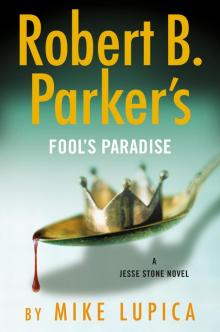 Fool's Paradise
Fool's Paradise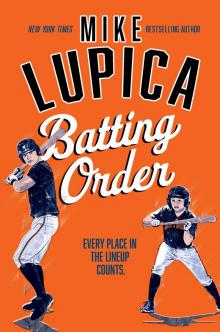 Batting Order
Batting Order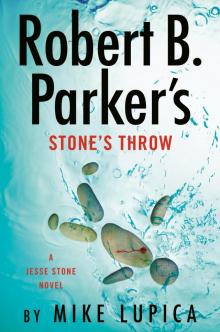 Stone's Throw
Stone's Throw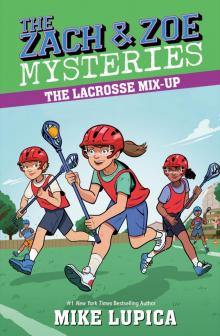 The Lacrosse Mix-Up
The Lacrosse Mix-Up The Hockey Rink Hunt
The Hockey Rink Hunt Payback
Payback Triple Threat
Triple Threat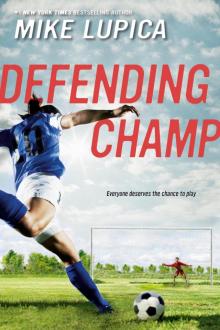 Defending Champ
Defending Champ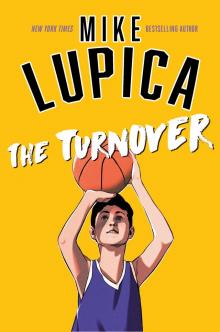 The Turnover
The Turnover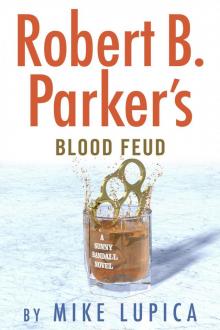 Robert B. Parker's Blood Feud
Robert B. Parker's Blood Feud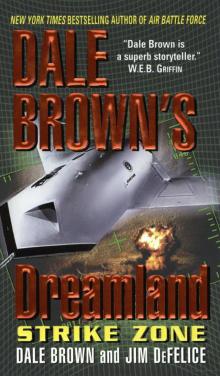 Strike Zone
Strike Zone Hero
Hero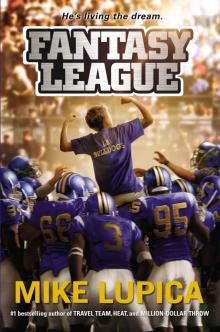 Fantasy League
Fantasy League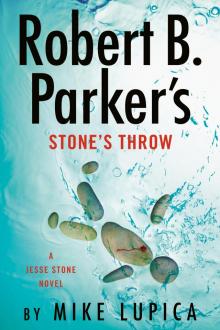 Robert B. Parker's Stone's Throw
Robert B. Parker's Stone's Throw The Big Field
The Big Field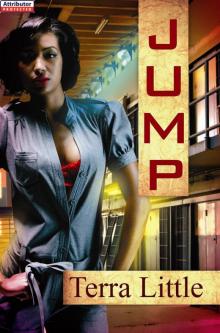 Jump
Jump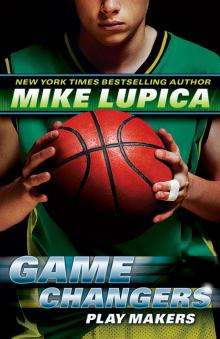 Play Makers
Play Makers The Underdogs
The Underdogs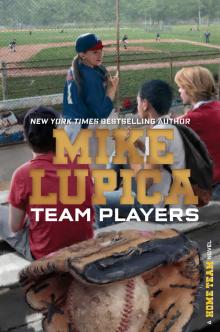 Team Players
Team Players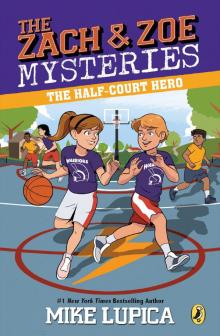 The Half-Court Hero
The Half-Court Hero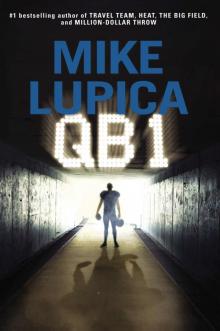 QB 1
QB 1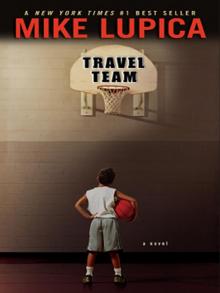 Travel Team
Travel Team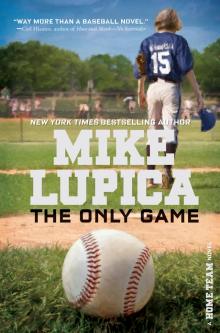 The Only Game
The Only Game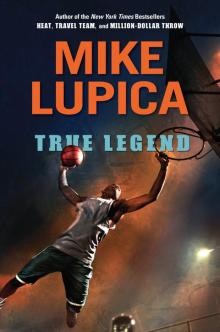 True Legend
True Legend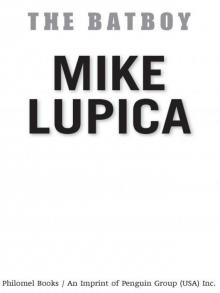 The Batboy
The Batboy Hot Hand
Hot Hand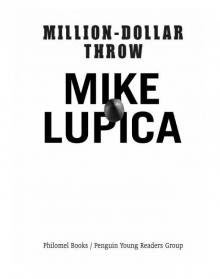 Million-Dollar Throw
Million-Dollar Throw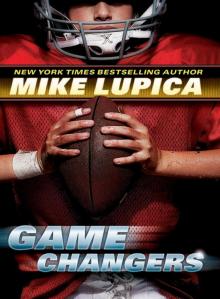 Game Changers
Game Changers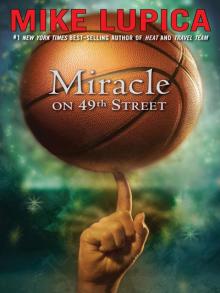 Miracle on 49th Street
Miracle on 49th Street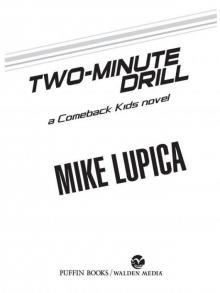 Two-Minute Drill
Two-Minute Drill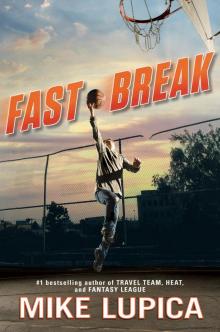 Fast Break
Fast Break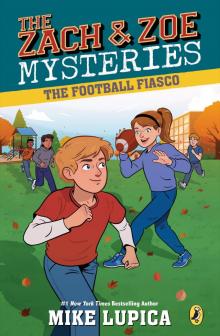 The Football Fiasco
The Football Fiasco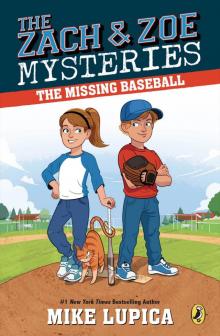 The Missing Baseball
The Missing Baseball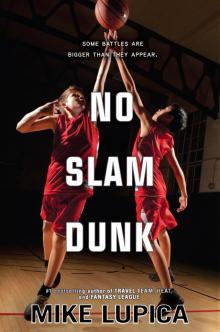 No Slam Dunk
No Slam Dunk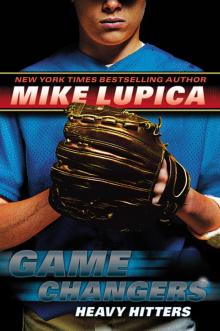 Heavy Hitters
Heavy Hitters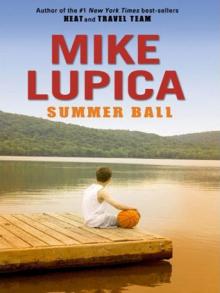 Summer Ball
Summer Ball The Extra Yard
The Extra Yard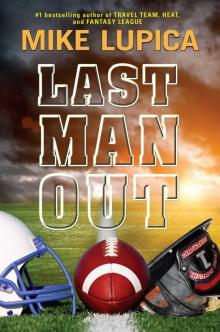 Last Man Out
Last Man Out